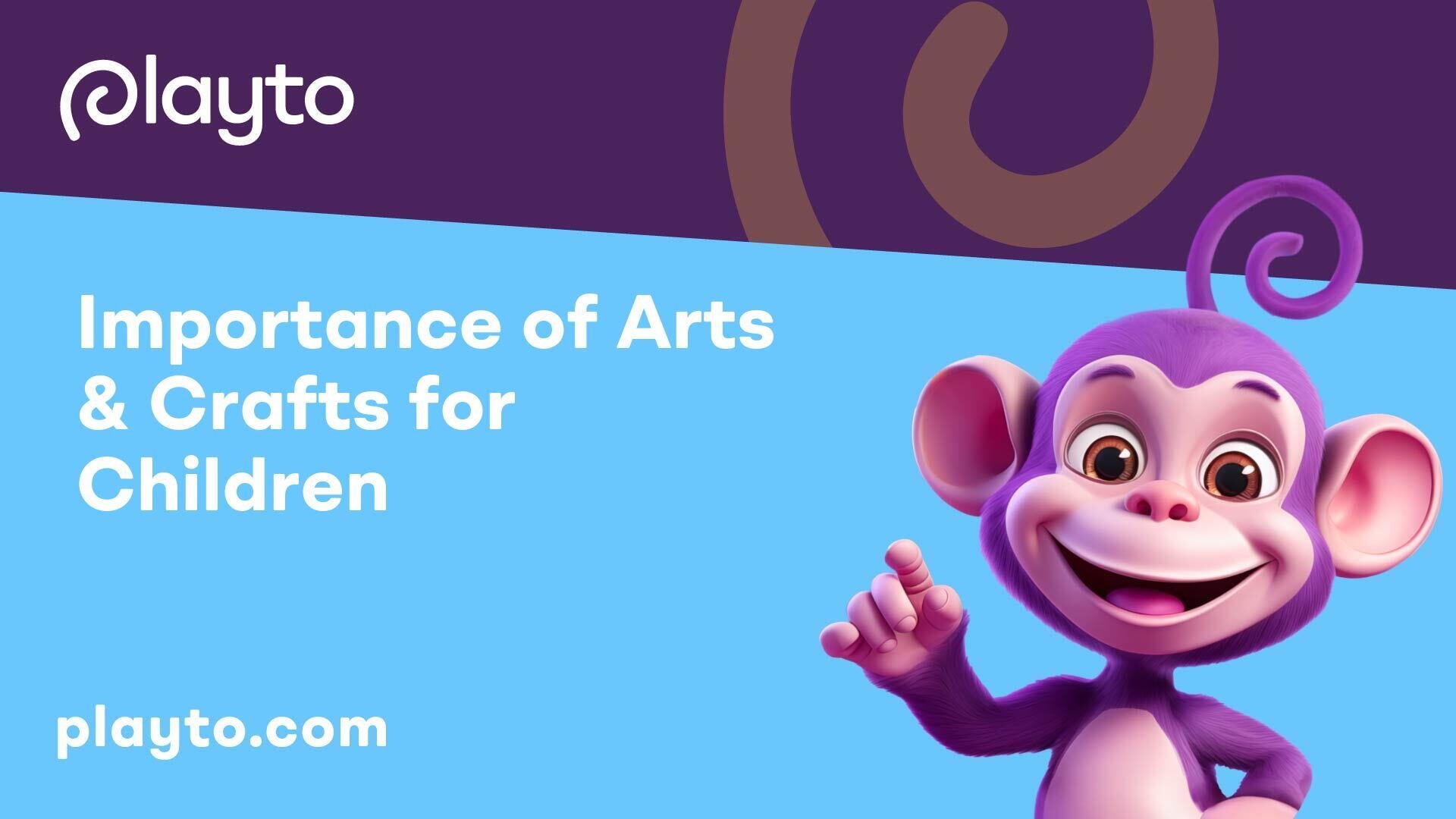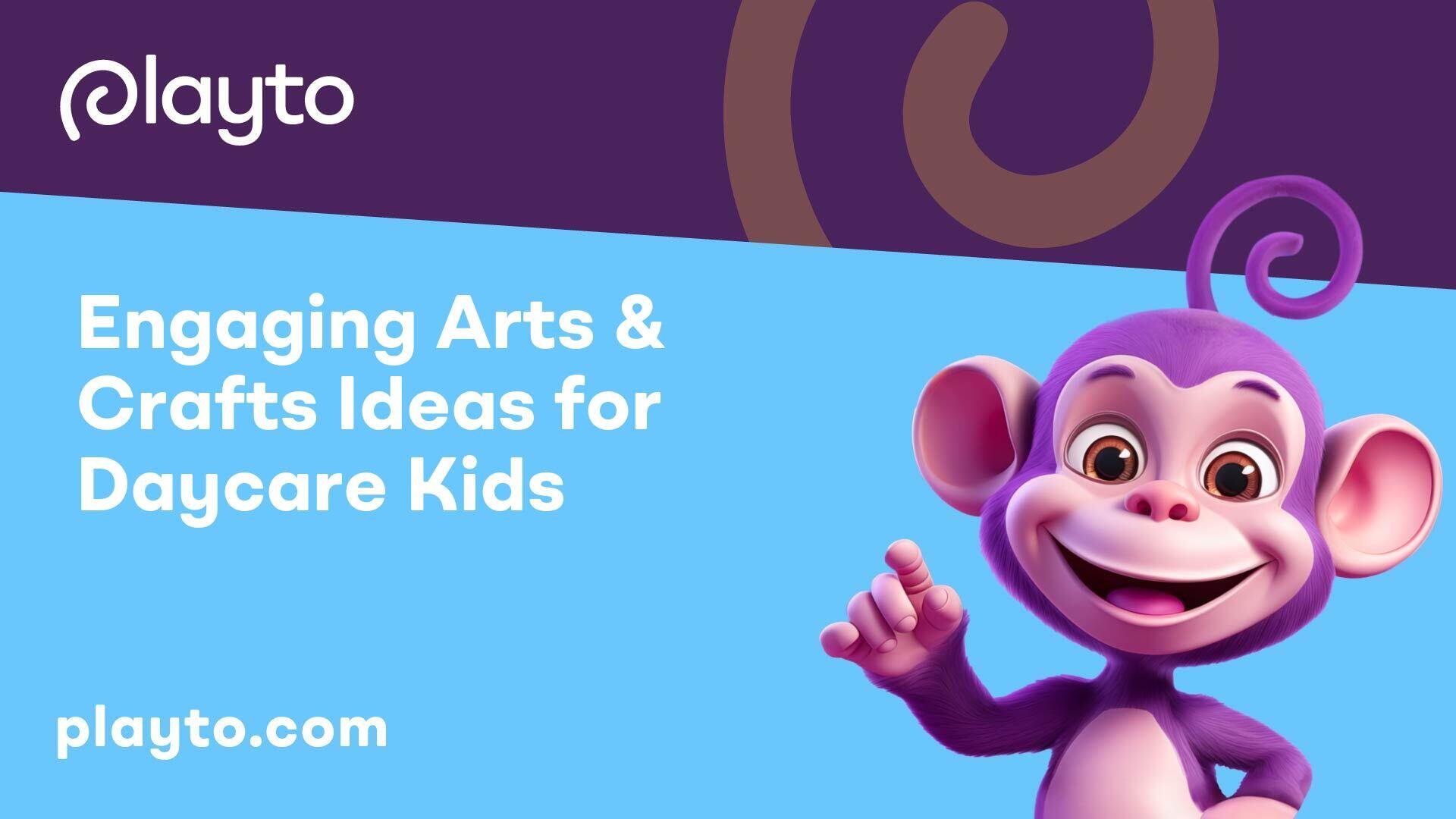
The Benefits of Arts & Crafts in Daycare
Exploring the significance of engaging children in arts and crafts activities at daycare provides a valuable insight into the positive influence such activities have on a child's overall development, specifically on their fine motor skills.
Impact on Child Development
Engaging in arts and crafts can have a profound impact on a child's growth and development. These creative activities play a crucial role in encouraging creativity and imagination, promoting self-expression, and boosting cognitive skills. According to Brightwheel, arts and crafts can enhance fine motor skills, encourage creativity, and foster social skills, all of which are essential elements in a child's developmental journey.
Child-guided art and craft experiences not only inspire creative expression but also help strengthen a child's shape, line, and color knowledge [1]. Through these activities, children have the opportunity to explore their feelings and ideas in a safe and supportive environment, nurturing their emotional and cognitive development.
Enhancing Fine Motor Skills
One of the key benefits of arts and crafts in daycare is the enhancement of fine motor skills. Engaging in activities like drawing, painting, cutting, and pasting helps children develop and refine their hand-eye coordination, manual dexterity, and finger strength. These skills are essential for tasks like writing, tying shoelaces, and using utensils effectively.
Arts and crafts activities are not only fun and engaging but also serve as a foundation for building skills that children will need as they progress through school [2]. By providing children with opportunities to express themselves creatively and develop their fine motor skills, daycare centers play a crucial role in laying the groundwork for future academic success.
In daycare settings, arts and crafts projects are not just about creating art; they are about fostering a holistic approach to child development. These projects provide children with a platform to improve self-expression, self-esteem, and mindfulness, allowing them to explore their emotions and thoughts in a safe and constructive environment [3]. Through these activities, children can develop a sense of accomplishment and pride in their creations, contributing to their overall well-being and confidence.

Importance of Arts & Crafts for Children
In child development, the significance of arts and crafts cannot be overstated. These creative activities play a pivotal role in nurturing young minds and fostering various skills that are essential for growth and learning. Two key aspects highlighting the importance of arts and crafts for children are inspiration for creative expression and learning skills that are beneficial for school.
Inspiration for Creative Expression
Engaging in arts and crafts provides children with a platform for creative expression. Through art projects, children can unleash their imagination, experiment with different materials, and express their thoughts and emotions in a visual form. This creative outlet not only allows children to explore their artistic abilities but also helps them communicate ideas and feelings that they may find challenging to express verbally.
By promoting creative expression, arts and crafts empower children to think outside the box, problem-solve creatively, and develop a sense of confidence in their abilities. These experiences lay a solid foundation for exploring new ideas, embracing innovation, and fostering a lifelong appreciation for the arts.
Learning Skills for School
Art activities are fundamental in equipping children with crucial skills that are beneficial for their academic journey. Art projects enhance cognitive abilities, fine-tune motor skills, and improve hand-eye coordination—all of which are essential for success in the classroom.
Participating in arts and crafts activities helps children develop fine motor skills through activities like painting, coloring, gluing, and cutting. These activities engage small hand muscles, improve bilateral coordination skills by using both hands simultaneously, and enhance overall dexterity. Such skills not only aid in artistic endeavors but also contribute to improved handwriting, better focus, and enhanced spatial awareness, all of which are beneficial for academic pursuits.
Moreover, creative activities foster problem-solving skills, encourage critical thinking, and nurture the ability to explore and experiment with new ideas. By instilling a love for arts in children, these activities create a holistic learning environment that transcends traditional education boundaries and prepares young learners for academic success.
In conclusion, arts and crafts play a vital role in shaping children's development by providing them with a platform for creative expression and imparting essential skills for their academic journey. By incorporating art activities into daycare programs, educators can promote imagination, creativity, and learning in a fun and engaging manner, setting the stage for a bright and successful future for the children of New York.

Engaging Arts & Crafts Ideas for Daycare Kids
Engaging daycare kids in arts and crafts activities is not only fun but also beneficial for their overall development. Here are two exciting and creative arts and crafts ideas that are sure to captivate young minds:
Creating a Desktop Castle
Kids can embark on a magical adventure by creating their very own desktop castle using a free printable template. This activity allows children to unleash their imagination and storytelling skills as they design and assemble their castle. By working on this project, kids can enhance their creativity and fine motor skills while enjoying a fun and engaging crafting experience. To get started on this enchanting project, you can find the free printable castle template on Highlights.
Making Sidewalk Chalk at Home
Another fantastic arts and crafts idea for daycare kids is making sidewalk chalk right at home. This creative and surprisingly easy craft not only provides an opportunity for kids to explore colors and textures but also encourages outdoor play and creativity. By making their own sidewalk chalk, children can feel a sense of accomplishment and pride in their DIY creation. This hands-on activity promotes sensory exploration and artistic expression in a playful and interactive way. Explore this simple yet engaging craft idea on Highlights.
By incorporating these engaging arts and crafts ideas into daycare activities, children can foster their creativity, fine motor skills, and cognitive development in a fun and interactive manner. These projects not only provide a creative outlet for kids but also encourage self-expression and exploration, laying the foundation for a lifelong love of art and crafting.

Fun and Creative Projects
Engaging children in arts and crafts activities not only fosters creativity but also enhances their fine motor skills. Let's explore two fun and creative projects that are perfect for daycare kids.
Crafting Colorful Butterflies
Crafting colorful butterflies is a delightful activity that celebrates fine motor skills. Children can immerse themselves in this hands-on craft, creating vibrant butterflies while improving their dexterity and coordination. The process of cutting, coloring, and assembling the butterflies not only encourages creativity but also helps children refine their motor skills.
To create these whimsical creatures, children can use a variety of materials such as colored paper, markers, glitter, and pipe cleaners. By following simple step-by-step instructions or using templates, kids can design their unique butterflies, each one a masterpiece of their own making. Encourage them to experiment with different colors and patterns to add a personal touch to their creations.
Crafting colorful butterflies is not only an enjoyable art activity but also a valuable learning experience that promotes imagination and artistic expression in young children. It's a wonderful way to engage kids in a creative outlet while honing their motor skills.
Designing Toy Cameras
Another engaging project for daycare kids is designing their own toy cameras. This activity, as highlighted by Highlights, allows children to unleash their creativity and imagination while having fun. Toy cameras are perfect for kids who are not quite ready for real cameras but still want to play the part.
Children can use simple materials like cardboard boxes, colored paper, stickers, and markers to craft their personalized cameras. They can design the camera body, add colorful accents, and even create a pretend viewfinder for added realism. This project encourages children to think creatively and inventively as they transform ordinary materials into imaginative playthings.
Designing toy cameras not only provides a fun and interactive activity for daycare kids but also nurtures their storytelling abilities and role-playing skills. It's a fantastic way for children to engage in hands-on art and craft projects that stimulate their minds and encourage imaginative play.

DIY Craft Ideas for Kids
For kids in daycare, engaging in do-it-yourself (DIY) craft projects can be both fun and educational. Two creative and hands-on DIY craft ideas that are perfect for young children are building a DIY microscope and personalizing a DIY book bin.
Building a DIY Microscope
Crafting a DIY microscope out of recycled materials provides children with a unique opportunity to explore and experiment creatively. Not only is this project engaging, but it also encourages kids to delve into the world of science and discovery. By assembling a simple microscope using everyday household items, children can enhance their observational skills and spark their curiosity about the world around them.
This hands-on activity fosters creativity and resourcefulness, offering daycare kids an interactive way to learn and play at the same time. Encouraging children to build their own DIY microscope helps to instill a sense of accomplishment and boosts their confidence in their ability to create and innovate.
Personalizing a DIY Book Bin
Another enjoyable DIY project for kids is personalizing a book bin using recycled or leftover boxes covered with construction paper and clear packing tape. Not only does this craft allow children to add their personal touch to their storage space, but it also promotes organization and a love for reading.
Creating a DIY book bin empowers children to take ownership of their belongings and encourages them to keep their space neat and tidy. By engaging in this craft, kids can develop their fine motor skills through cutting, folding, and decorating, while also fostering a sense of responsibility and pride in caring for their books and other items.
Both the DIY microscope and the personalized book bin offer daycare kids the opportunity to express their creativity, enhance their fine motor skills, and cultivate a sense of accomplishment. These hands-on projects not only provide a fun and engaging outlet for children but also contribute to their overall development and growth in a positive and educational manner.
Recommended Art Supplies for Daycare
When it comes to engaging toddlers in arts and crafts activities, choosing the right art supplies is essential to foster their creativity and development. Providing a variety of high-quality art materials can enhance their sensory experiences and encourage self-expression. Here are some recommended art supplies for daycare, categorized into basic art supplies and supplies specifically tailored for painting activities.
Basic Art Supplies
Basic art supplies are fundamental for children to explore their artistic abilities and unleash their imagination. These supplies are versatile and can be used across a wide range of art projects:
Art Supplie sDescription
- Paper: Different textures and sizes for various creations.
- Washable Markers: Non-toxic markers that are easy to clean.
- Crayons: Colorful wax crayons for drawing and coloring.
- Glue: Child-safe adhesive for craft projects.
- Pom Poms: Soft, colorful balls for decorating and sensory play.
- Child-Safe Scissors: Easy-to-use scissors designed for small hands.
For a comprehensive list of over 100 art supplies suitable for preschoolers and kindergarteners, including the basic supplies mentioned above, refer to The Moments At Home.
Supplies for Painting Activities
Painting activities are not only fun but also excellent for developing fine motor skills and sensory exploration in children. Here are the recommended art supplies for painting projects:
Art Supplies Description
- Watercolor Paints: Vibrant paints that can be diluted with water for washes.
- Water Cups: Containers for diluting paint and cleaning brushes.
- Dish Cloths: Absorbent cloths for cleaning and drying brushes.
- Paper Towels: For blotting and cleaning up spills.
- Washable Kids Paint: Non-toxic paint that is easy to clean.
- Finger Paints: Paints designed for tactile finger painting.
- Standard Paint Brushes: Various sizes for different painting techniques.
- Paint Trays: Palette trays for mixing colors.
- Easels: Sturdy stands for holding canvas or paper.
- Canvas: Durable surfaces for painting.
- Large Paint Brushes: Easy-to-grip brushes suitable for small hands.
- Painting Smocks: Protective clothing for mess-free painting sessions.
- Tempera Paint Sticks: Solid paint sticks for quick and mess-free application.
- Paint Pens: Markers filled with paint for detailed work.
- Cotton Balls: Textured tools for dabbing and blending colors.
- Q-Tips: Precision tools for fine painting details.
- Watercolor Pencils: Pencils that turn into watercolor when wet.
To create vibrant and engaging painting experiences for daycare kids, ensure you have the necessary supplies ready. For additional art supplies recommendations and tips on how to develop fine motor skills through art activities, you can refer back to The Moments At Home.
Developing Fine Motor Skills
Engaging children in arts and crafts activities goes beyond just being a fun pastime – it plays a significant role in toddler development by enhancing their fine motor skills. Two effective ways to promote fine motor skills through arts and crafts are by using clay and Play-Doh and incorporating projects that specifically target the development of these skills.
Using Clay and Play-Doh
Clay and Play-Doh are versatile materials that provide children with a tactile and engaging medium to explore their creativity while simultaneously enhancing their fine motor skills. The act of molding, pinching, rolling, and shaping these materials requires the use of small hand muscles, improving dexterity and hand-eye coordination.
By manipulating clay or Play-Doh, children strengthen the muscles in their hands and fingers, which are essential for activities like writing, drawing, and buttoning clothes. These activities also encourage sensory exploration and stimulate the senses, making them ideal for sensory development in young children.
Fine Motor Skill Promoting Projects
Integrating projects that specifically focus on promoting fine motor skills can be beneficial for children's development. Activities such as threading beads onto a string, using tweezers to pick up small objects, or cutting and pasting shapes require precise hand movements and coordination.
These projects not only enhance fine motor skills but also improve bilateral coordination by encouraging the use of both hands simultaneously. As children engage in activities like painting, coloring, gluing, and cutting, they develop essential motor skills that lay the foundation for more complex tasks in the future.
By providing children with opportunities to explore and create through clay, Play-Doh, and fine motor skill promoting projects, daycare centers can actively contribute to the holistic development of children. These activities not only foster creativity and imagination but also play a crucial role in improving hand dexterity, coordination, and overall motor skills in young learners.
Impact of Art & Crafts on Child Development
Engaging children in art and crafts activities plays a vital role in their overall development, nurturing various skills and abilities that are crucial during their formative years. Two key aspects where art and crafts significantly impact child development are cultivating creativity and self-expression, as well as fostering social interaction.
Cultivating Creativity and Self-Expression
By participating in art and craft projects, children are provided with a platform to explore their creativity and express themselves in unique ways. Art allows them to translate their thoughts, emotions, and ideas into tangible creations, fostering a sense of self-expression and individuality. This freedom to unleash their creativity not only boosts their confidence but also encourages them to think outside the box and approach challenges with innovative solutions.
Through artistic endeavors, children learn to experiment with different materials, colors, and techniques, broadening their imagination and enhancing their problem-solving skills. According to Kaplan, child-guided art experiences can inspire creative expression and strengthen their knowledge of shapes, lines, and colors.
Fostering Social Interaction
Art and crafts activities provide an excellent opportunity for children to engage in social interaction, collaboration, and communication with their peers. Working on projects together encourages teamwork, cooperation, and the sharing of ideas among children, thereby fostering valuable social skills from a young age.
Participating in group art projects or craft sessions promotes a sense of community and camaraderie, allowing children to learn from one another, build friendships, and develop empathy and respect for different perspectives. These social interactions help children develop important interpersonal skills that are essential for their personal and academic growth, as highlighted by Activity Box.
Encouraging children to engage in creative and collaborative art and crafts projects not only enhances their developmental skills but also creates a nurturing and inclusive environment where they can thrive and express themselves freely. By prioritizing creativity and social interaction in daycare settings, caregivers can empower children to explore their potential, build relationships, and develop essential life skills through the joy of artistic expression.
References
[1]: https://www.kaplanco.com/shop/
[2]: https://childrensmedicalgroup.net/how-do-arts-and-crafts-help-child-development/
